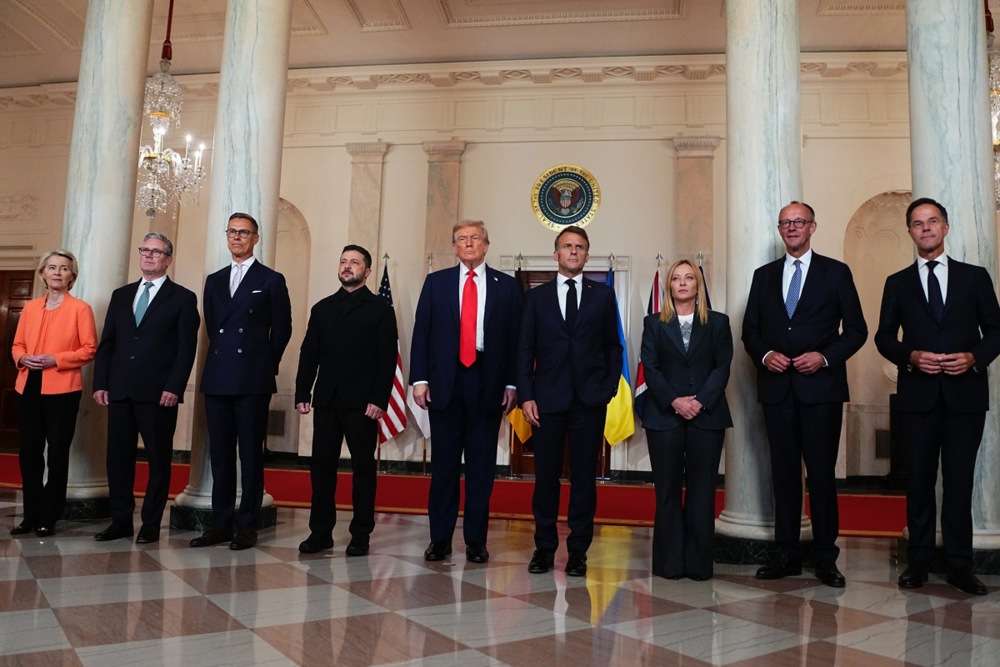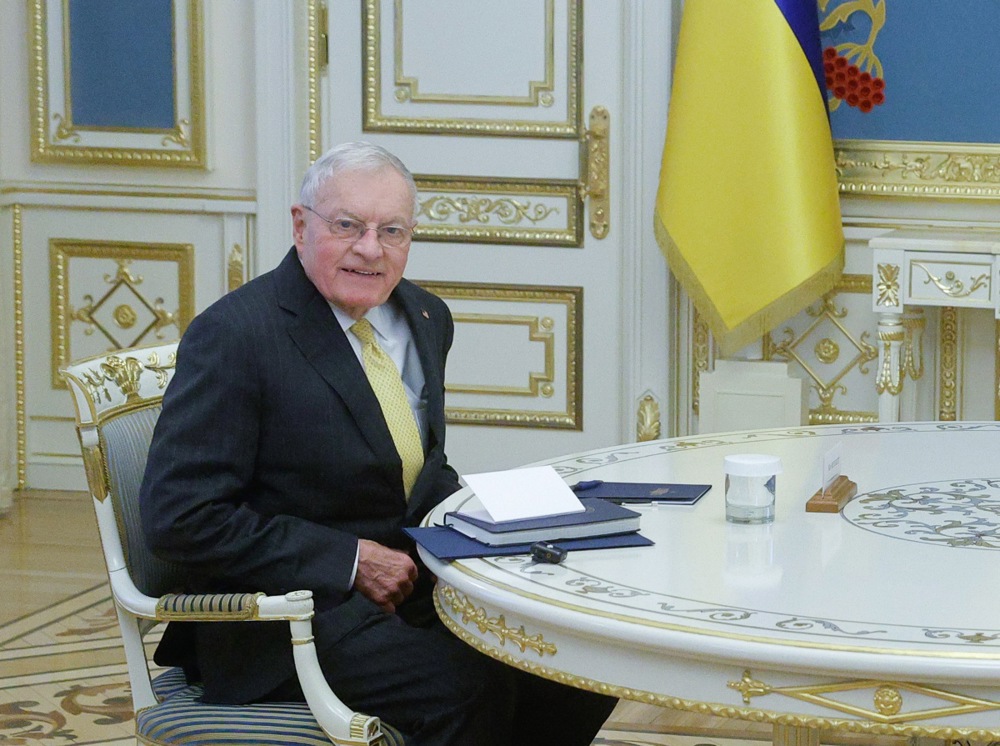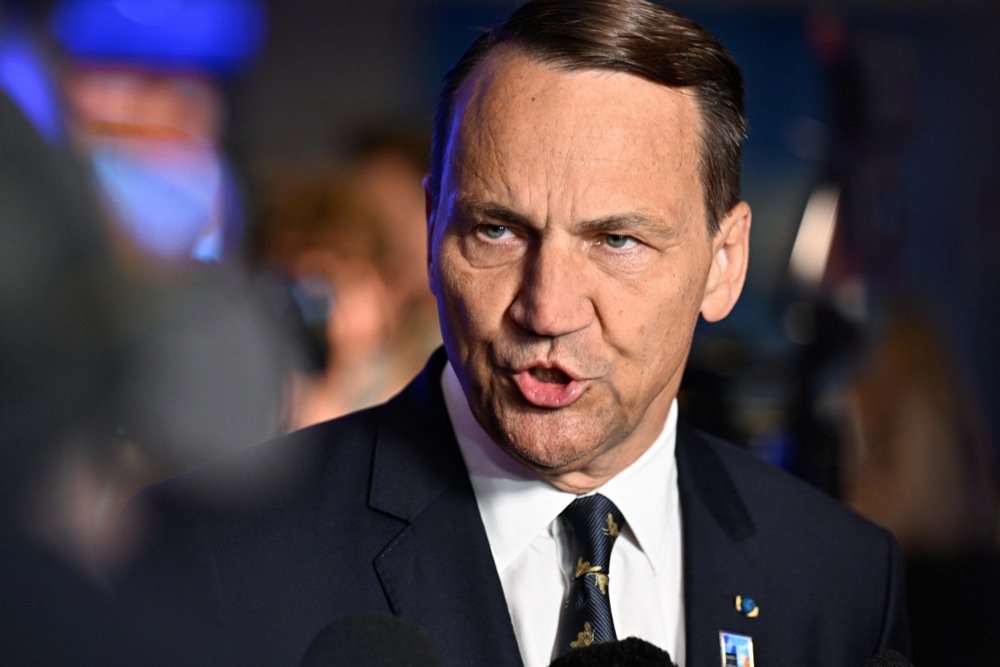Poland was excluded from the ongoing Russia-Ukraine peace talks in Geneva at which Germany, France and the UK have played a role.
Representatives of the informal E3 group of France, Germany and the UK, as well as the European Union, the US and Ukraine met to discuss the 28-point peace plan for Ukraine proposed by Washington.
The talks were assessed as “extremely fruitful” and they were expected to lead to an updated peace agreement aimed at ending the war with Russia.
There was no place for Poland, though, despite it having acted as the hub for military and humanitarian aid for Ukraine since the start of the Russian invasion in 2022.
That was commented on by opposition Conservative PiS MEP Adam Bielan.
“Prime Minister Donald Tusk boasts about Poland’s excellent position in Europe, [Deputy PM] Radosław Sikorski boasts that he enjoys an excellent position as foreign minister but when push comes to it, the leaders of four countries meet: Italy, France, Germany, the United Kingdom.
“Poland is absent,” he told commercial broadcaster Polsat News.
Bielan recalled that in May, Tusk travelled to Kyiv in a separate carriage from the other European leaders.
“When there is a visit to Kyiv and Tusk goes there, because it’s difficult for him not to go if the train departs from Poland, Tusk is directed to a ‘second-class carriage’,” he sniped.
The MEP was scathing about the government’s claim that Tusk was going to be consulted about the matter during the EU-African Union Summit yesterday in Luanda, Angola.
“This is humiliating” because the summit in question was “devoted to an entirely different topic” and that the peace talks on Ukraine were held over the weekend continuing into November 24 in Geneva, he said.
According to Tomasz Sakiewicz, the CEO of conservative broadcaster TV Republika, Tusk is “persona non-grata” with the US administration because he once called President Donald Trump a “Russian asset”.
But Poland’s opposition-aligned President Karol Nawrocki was not invited to Geneva either. He had been absent from the talks about the Ukraine war that were held in August in the White House.
Nawrocki’s chancellery has been briefing that his aides are in constant touch with Trump’s administration and that Nawrocki himself, during his visit to the White House in September, had discussed the Ukraine issue and Poland’s stance on the matter.
Both Nawrocki and Tusk have been lukewarm in response to Trump’s peace plan to end the war in Ukraine.
Tusk said that the point about Poland hosting European fighter jets, which made no reference to NATO troops being stationed in Poland, was unacceptable in its present form and Warsaw had not been consulted on it.
“Poles will make decisions concerning Poland,” wrote Tusk on X yesterday, in a presumed reference to the part of the plan requiring European aircraft to be stationed in Poland. “Nothing about us without us,” he added.
President Nawrocki, who has enjoyed good relations with the Trump administration, had on November 21 reacted with some scepticism to the reports of the US proposal, warning that the negotiations “must take into account the fact that Russia is a country that does not honour agreements”.
“Each and every peace plan aimed at ending the war in Ukraine started by Russia must be accepted in Kyiv,” he said, echoing Tusk despite the pair being at odds on domestic politics.
“It is Ukraine that has fallen victim to Putin’s criminal aggression, and it is the Ukrainians, with the support of the United States and the EU countries, who must have the decisive voice in peace talks,” added the Polish president
“The price of peace cannot in any way be the achievement of strategic goals by the aggressor,” concluded Nawrocki.
During his visit to Prague yesterday, though, Nawrocki said: “Only President Trump could make Putin end the war.”
At the same time, Tusk, while in Luanda, told Polish government-controlled broadcaster TVP World that it was the US, Russia and Ukraine who held the key to the peace talks and not Europe.





